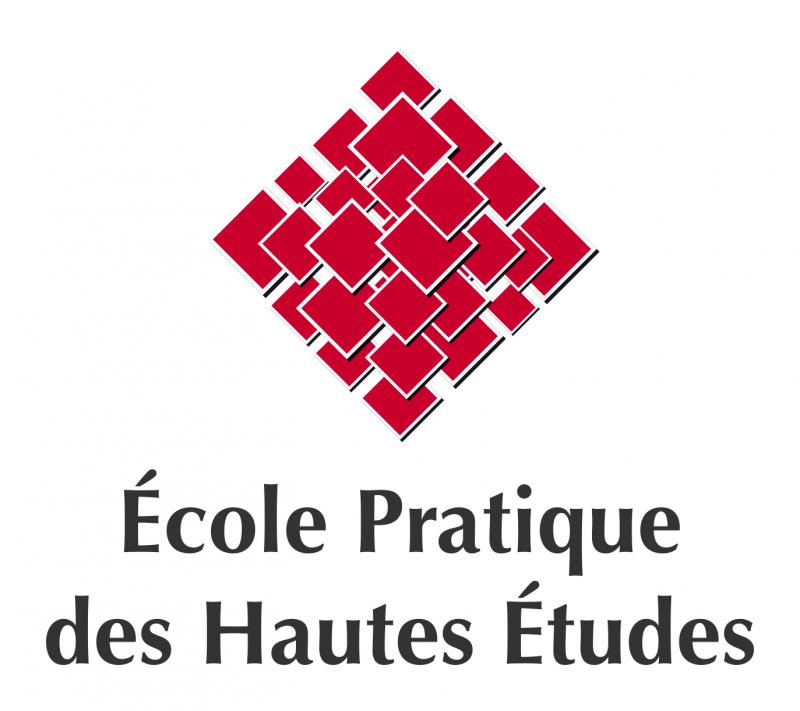Publications - Article de conférence
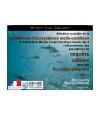
Altération possible de la résilience d’écosystèmes récifo-coralliens d’intérêt de la Mer de Corail (Pacifique Ouest) liée à l’effondrement des populations de requins côtiers dans des îles relais éloignées
PUBLICATIONS SCIENTIFIQUESArticle de conférence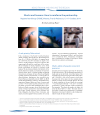
A sole priority: Take action!
If the conclusions of the Pacific Coral Reef Institute (IRCP) workshop held on Moorea (French Polynesia) from 13 to 17 October 2014 had to be summed up in just a few words, the above statement, as simple as it is incisive, would probably be the best description. This symposium dealt with the overall topic of the sustainable development of shark populations in the South Pacific, particularly in response to pressures from humans. The meeting was funded at the initiative of the Pacific Fund for Scientific and Cultural Cooperation (French Pacific Fund), a French funding mechanism that promotes exchanges between French and English speaking territories in the Pacific, to work together on shared problems. Funding was also provided by the French Polynesia Shark Observatory (ORP), the IRCP and the French Ministry of Ecology, Sustainable Development and Energy. Sharks are a topic of concern and in order to better understand the priorities for ensuring sharks’ protection while maintaining their contributions to island economies, about 30 specialists from various countries and territories (Australia, Colombia, Fiji, France, French Polynesia, New Caledonia, the United Kingdom, the United States of America, and Samoa), divided equally between members of research agencies, non-governmental organisations, regional organisations, governmental bodies, and the private sector (commercial divers, veterinarians, journalists) met to determine the wording of a message to Pacific Island decision-makers and managers.
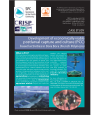
Development of economically viable postlarval capture and culture (PCC) based activities in Bora Bora (French Polynesia)
PUBLICATIONS SCIENTIFIQUESArticle de conférencePCC stands for postlarval capture and culture (or “growout”). Postlarvae are a development stage in reef fish and crustaceans prior to both settlement in the lagoon and adulthood. The vast majority of animals start their development cycle with an ocean phase lasting one to three months, after which fish and crustaceans re-enter the lagoon in their hundreds of millions. Only approximately one in a million individuals will reach their adult stage, with most juveniles being eaten by predators. Using innovative techniques (such as crest nets or light traps – see photos below), postlarvae can be captured and bred for sale to four potential uses: aquaculture for food purposes; restocking into ecosystems to boost biodiversity and fish density for fishing purposes or simply for ecotourism such as snorkelling in coral gardens; and the lucrative aquarium market. Despite their impressive numbers, the captured animals only account for a very small portion of the larval flow, hence the very slight impact on the ecosystem compared to techniques involving the capture of adults with large quantities of breeding individuals. This makes PCC a potentially ecofriendly industry.
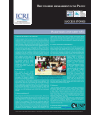
This leaflet presents 4 sucess stories of projects of sustainable reef fisheries that were supported by the Coral Reef InitiativeS for the Pacific (CRISP programme) implemented under the auspices of the Secretariat of the Pacific Community in Noumea.
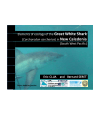
Elements of ecology of the Great White Shark (Carcharodon carcharias) in New Caledonia (South West Pacific)
PUBLICATIONS SCIENTIFIQUESArticle de conférenceNew Caledonia appears as a wintering ground for Great White Shark (Carcharodon carcharias) that arrive from the South around June in the track of humpback whales and leave around March. The feeding on deep spawning aggregations of snappers may explain why this species remains so long after the departure of whales in December. GWS are responsible for several fatal attacks on humans in New Caledonia, tha last ones taking place in 2007 and 2009.
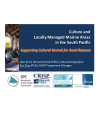
How a cultural approach is necessary in the South Pacific to obtain a full ownership of stakeholders and efficiency in the framework of the implementation of Locally Managed Marine Areas?
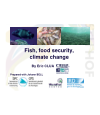
A global analysis of the effects of climate change on fish stocks, fisheries and food security if conducted for the Pacific island and presented by Dr Eric CLUA from the Secretariat of the Pacific Community. After presenting the importance of fish in the oceanian diet, effects of CC on fish stocks is presented and solutions are drawn for the future.
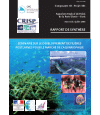
Séminaire sur le développement de filières postlarves pour le marché de l’aquariophilie
PUBLICATIONS SCIENTIFIQUESArticle de conférenceL’acronyme PCC provient de la terminologie anglophone Postlarvae Capture and Culture que l’on peut traduire par capture et culture des postlarves. Les postlarves sont un stade de développement des poissons et crustacés de récif qui précède l’installation dans le lagon et le passage au stade adulte. La grande majorité des animaux débutent leur cycle de développement par une phase océanique de 1 à 3 mois à l’issue de laquelle poissons et crustacés réinvestissent par centaines de millions les lagons. Environ un seul individu sur un million parviendra à l’état adulte, la plupart de ces juvéniles disparaissant dans l’estomac de prédateurs. Des techniques innovantes permettent de capturer ces postlarves pour les élever et les valoriser à travers trois destinations possibles : l’aquaculture pour produire des poissons de bouche, le réensemencement des écosystèmes pour renforcer la biodiversité et la densité des poissons (destinés à être pêchés ou simplement contemplés par les touristes) et enfin, le marché (rémunérateur) de l’aquariophilie. Malgré leur nombre impressionnant, les animaux capturés ne représentent qu’une portion très marginale du flux larvaire, d’où un impact très mesuré sur l’écosystème comparé à des techniques de capture des adultes qui sont des géniteurs en puissance. Ce point fait de la PCC une filière potentiellement ecofriendly (en terminologie anglo-saxonne). Afin de partager les expériences scientifiques et techniques acquises dans ce domaine ainsi que les perspectives qu’il offre en matière de développement durable et d’écocertification, le ministère des Affaires étrangères et européennes, l’Agence Française de Développement (AFD), le Fonds Français pour l’Environnement Mondial (FFEM), et l’Aquarium tropical du palais de la Porte Dorée se sont associés pour l’organisation d’un séminaire intitulé “Postlarves, commerce et développement” qui s’est tenu le mercredi 2 juillet 2008, à Paris. Cet événement, accueilli par l’Aquarium de la Porte Dorée, de 14 h à 17 h, au 293 av. Daumesnil – 75012 Paris, a rassemblé une quarantaine de personnes dont des professionnels, scientifiques, utilisateurs et institutions françaises impliqués dans le domaine. Les objectifs poursuivis par ce séminaire étaient les suivants : – Présenter les bases scientifiques du caractère “durable” des filières reposant sur la capture des postlarves; – Effectuer un bilan des expériences passées quant à la commercialisation de ces produits ecofriendly; – Informer les divers acteurs de la stratégie de développement des filières postlarves dans le Pacifique, notamment des aspects d’écocertification; – évaluer l’intérêt porté par les différents professionnels à ces produits dont la viabilité économique est intimement liée à un effort de promotion à tous les niveaux de la filière. Le séminaire a débuté techniquement par une présentation des aspects scientifiques et de l’impact écologique de la PCC par le Pr René Galzin (EPHE). Il ressort que cette technique a un impact écologique mineur, mais que sur le plan de la rentabilité économique elle est pénalisée par l’hétérogénéité temporelle des captures, la relative pauvreté en espèces à forte valeur commerciale, et parfois le coût de la main d’œuvre qui peut être rédhibitoire dans certains pays. La recherche scientifique appliquée actuelle se penche sur la valorisation des postlarves de crustacés, et le test de méthodes d’attraction (son, olfaction) visant de nouvelles espèces. La présentation suivante a été effectuée par Patrice Ortin de la société ALL Marine, qui a fait état de résultats encourageants pour l’installation de filières en Indonésie reposant sur l’utilisation de pièges lumineux, tout en insistant sur les difficultés à faire accepter “culturellement” ces nouvelles technologies, et à ne pas négliger d’autres techniques, notamment la capture de juvéniles dans les cuvettes à marée basse (dont l’impact écologique est néanmoins plus grand que la PCC). Gilles Lecaillon de la société Ecocean, a fait un bilan globalement positif des expériences conduites dans le Pacifique, l’Indo-Pacifique et la Méditerranée, en insistant sur la nécessité d’implication de tous les acteurs pour une réussite d’installation de ces filières à un niveau viable. Sébastien Bernis a fait état pour le compte de la chaîne de magasin Botanic, d’une expérience de commercialisation de postlarves qui a échoué mais qui mérite d’être renouvelée de façon plus professionnelle, étant donné les atouts de ces produits ecofriendly. Éric Clua, coordinateur du programme CRISP (InitiativeS Corail pour le Pacifique), portée par l’AFD, le FFEM et le MAEE, a conclu les présentations par la description des stratégies d’amélioration de l’offre en postlarves à l’échelle du Pacifique et de modification de la demande, notamment par la mise en place d’une écocertification. Le séminaire s’est conclu par un débat constructif dont il ressort une volonté claire des professionnels présents de contribuer au développement de filières commerciales reposant sur des postlarves, dès lors que ces produits répondront à des critères incontournables de qualité, sachant qu’ils bénéficient par ailleurs d’atouts indéniables pour convaincre un public de plus en plus sensible aux aspects de “responsabilité écologique” dès lors que l’on touche au commerce d’animaux.
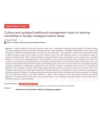
Culture and updated traditional management tools for serving ownership in locally managed marine areas
PUBLICATIONS SCIENTIFIQUESArticle de conférenceA major proportion of coral reefs around the world occur in small island developing countries (SIDS). The status of these resources is declining, while these countries simultaneously face major challenges in sustainable development for their people. Reef conservation in SIDS cannot be approached in the same way as conservation in more developed countries, even though the tools such as Marine Protected Areas may be effective for both situations. One of the main differences relies on the widespread inability of government services within SIDS to ensure adherence to legal frameworks aimed at protecting the reef resources from irreversible depletion. This gap can be compensated with a strong ownership by local communities through locally managed marine areas. The emergence of a real ownership strongly depends on the ability of developing actors in promoting the cultural dimension as a root of the process of locally based management which should include traditional tools, even if they need, most of the time, to be updated regarding ecological constraints for a sustainable development of reef resources. Therefore, a particular focus should be put by developing agencies on the integration of human factors (anthropology, socio-economics) for insuring the success of the ground actions, with innovative tools such as human factor based Geographic Information Systems. Local ownership can also be boosted by real examples of grounds successes to be shown to candidate communities and another issue relies on the setting up of functional networks at a regional level. The Coral Reef Initiative for the Pacific (CRISP) is a US$ 10 million programme over 3 years which implements this specific approach. The concepts behind CRISP draw on the recommendations of the International Coral Reef Initiative, and specifically seek to find Pacific solutions to regional problems
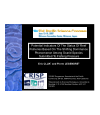
Potential Indicators Of The Status Of Reef Fisheries Based On The Shifting Dominance Phenomenon Among Scarid Species Submitted To Fishing Pressure
PUBLICATIONS SCIENTIFIQUESArticle de conférenceDirect effects of fishing pressure (FP) well documented in Reef ecosystems (Russ, 1991). Indirect effects much less documented, excepting a compensatory increase of density of small size individuals of the targeted species under low FP (Dulvy, 2004). Scarids: well represented species among the reef fisheries of the Pacific. HYPOTHESIS: The removal of Scarids by fishing has an obvious direct effect on the abundance of the targeted species, and also an indirect effect on the relative abundances of other Scarid species, including species not targeted by fishers.
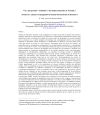
Nombre de démarches actuelles visant à impliquer les acteurs locaux dans la gestion des ressources naturelles reposent sur des présupposés qui faussent une collaboration potentiellement efficace entre populations locales et institutions en charge de la mise en place de dynamiques de co-gestion durable de ces ressources. Les sociétés insulaires du Pacifique sont communément décrites sous un angle simpliste les présentant comme homogènes et culturellement en harmonie avec leur milieu. Cette vision qui renvoie au mythe du « bon sauvage » directement hérité du siècle des lumières, est réactualisée par les organisations internationales sous la dénomination galvaudée de « communautés locales ». Leur état de « nature » leur confèrerait d’emblée une sagesse et un savoir-faire adaptés à une gestion durable de leurs ressources qui implique une conception de la gouvernance se résumant à un simple transfert de compétences décentralisées. Or les sociétés insulaires locales sont hétérogènes, dynamiques et contemporaines. Hétérogènes car constituées de groupes sociaux en perpétuelle concurrence. Dynamiques car en mutation rapide à l’heure actuelle. Contemporaines car, loin de vivre repliées sur elles-mêmes, elles montrent une propension importante à internaliser toutes les opportunités qui permettent d’agir dans le jeu social local : instrumentalisation des projets de développement et des positions administratives, utilisation des réseaux religieux et politiques, recours aux technologies modernes, etc. Les villages ou tribus océaniens sont des constructions coloniales de groupes sociaux différents rassemblés autour d’un lieu de culte (église ou temple). Ces groupes sociaux appartiennent en fait à des organisations en réseaux coutumiers répartis dans plusieurs villages. Cette caractéristique est la base d’un jeu local éminemment complexe mêlant les allégeances et alliances coutumières, les influences religieuses et les opportunités qu’offrent la politique et l’organisation administrative locale ou territoriale. Face à cette complexité, les processus de gestion intégrée doivent s’appuyer sur une conception moins naïve et plus pragmatique de la gouvernance, reposant sur une compréhension plus approfondie des stratégies d’acteurs permettant une meilleure adaptation des outils et une réelle interaction entre acteurs locaux et acteurs institutionnels. Le programme CRISP1 cherche à développer cette conception de la gouvernance en matière de gestion côtière intégrée dans laquelle les populations locales doivent jouer un rôle « négocié » prenant mieux en compte les fondements de leur organisation culturelle. A cet effet, le projet GERSA2, mis en œuvre par l’Unité ESPACE3 de l’IRD, joue un rôle transversal dans la composante 1 du CRISP qui englobe la gestion d’Aires Marines Protégées. L’analyse approfondie des sociétés locales sous les angles de la géographie culturelle et de la socio-économie est pleinement intégrée à la mise en œuvre d’outils opérationnels garantissant l’implication totale des acteurs locaux dans tout le processus de gestion, y compris les processus techniques. Cette démarche répond à la prise de conscience que la conservation de la nature ne peut être dissociée de la prise en compte de facteurs tels que la représentation culturelle que les usagers en ont et les enjeux d’usage dont elle fait l’objet.
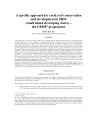
A specific approach for coral reef conservation and development in SIDS (small island developing states) - the CRISP programme
PUBLICATIONS SCIENTIFIQUESArticle de conférenceA major proportion of coral reefs around the world occur in developing countries. The status of these resources is declining, while these countries simultaneously face major challenges in sustainable development for their people. Reef conservation in SIDS cannot be approached in the same way as conservation in more developed countries, such as Australia or French territories, even though the tools such as Marine Protected Areas (MPA) may be effective for both situations. One of the main differences relies on the widespread inability of government services within SIDS to ensure adherence to legal frameworks aimed at protecting the reef resources from irreversible depletion. The Government of France has invited a wide range of other agencies (South Pacific Regional Environment Programme, Conservation International, WWF, United Nations Foundation and several scientific agencies) to join in developing a programme to address the root causes of coral reef degradation in South Pacific countries. This US$ 10 million project over 3 years will address a series of issues indicated by Pacific countries, with an emphasis on MPA implementation, integrated coastal management, development of coral reef resources (aquarium trade, ecotourism, marine active substances), rehabilitation of coral reef ecosystems and setting up of a regional reef database. A particular focus will be put on the integration of human factors (anthropology, socio-economics) for insuring the success of the actions developed on the ground, but also in the wide dissemination of the project outputs at a regional level. The integrated approach will rely on the dual involvement of land and marine issues, protection and development issues, community based and highest institutional level issues, existing tools (such as MPAs) and innovative ones (such as environmental information systems EIS, including human and cultural factors). The project will be focussed in Fiji, Vanuatu, Samoa, Cook Islands, Kiribati, French Polynesia, Wallis and Futuna and New Caledonia with the active involvement of other Pacific countries (Papua New Guinea, Niue, Tuvalu). The concepts behind CRISP draw on the recommendations of the International Coral Reef Initiative and partners, ICRAN (International Coral Reef Action Network) and GCRMN (Global Coral Reef Monitoring Network) and specifically seek to find Pacific solutions to regional problems.
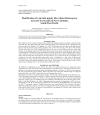
Identification of a juvenile pygmy blue whale (Balaenoptera musculus brevicauda) in New Caledonia, South-West Pacific
PUBLICATIONS SCIENTIFIQUESArticle de conférenceThis paper presents the first record of a blue whale (Balaenoptera musculus) in New Caledonia, south-west Pacific. The individual observed was a juvenile male. It spent more than a month in the shallow waters of the lagoon of New Caledonia, during which its condition appeared to slowly deteriorate, until it was attacked and eaten by sharks.
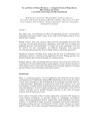
Use and Status of Marine Resources - A Complex System of Dependencies Between Man and Nature - Case Studies from Tonga and Fiji, South Pacific
PUBLICATIONS SCIENTIFIQUESArticle de conférenceThis paper aims at investigating the effects of population pressure, westernisation- urbanisation and marine tenure systems on the status of reef finfish resources in two South Pacific countries. Finfish resource, total catch and per capita fresh fish consumption decreased with increasing westernisation-urbanisation, supporting a direct link between fishing and population pressure. Unconventionally, we suggest that in the communities surveyed the interest for fish consumption and fisheries diminishes with increased westernisation-urbanisation due to the available nutrition and income alternatives. Significant variations of fishing levels suggest that the level of exploitation is the predominant factor in structuring fish populations observed. Fishing pressure was found to initially affects biomass through size, and then density. Findings indicate a direct relationship between resource status and user level. Because marketing may be more influential than marine property systems, the final decision to which marine tenure systems add to urbanisation-westernisation influences to fishing pressure and thus status of reef fish needs further analysis.
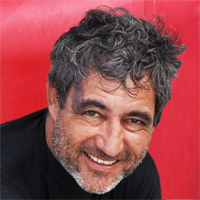

 Français
Français